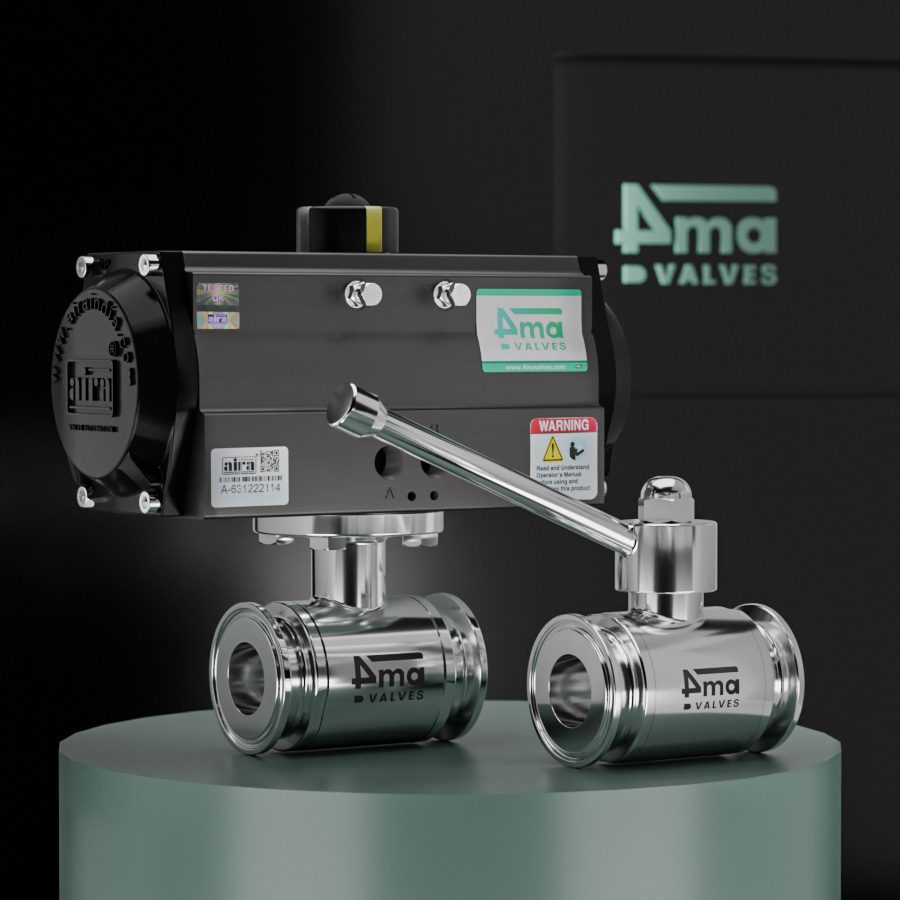In the fast-growing cosmetic and personal care industry, product quality, hygiene, and consistency are everything. From lotions and creams to shampoos and serums, manufacturers must ensure that every drop of product is handled in a sterile and controlled manner. At the heart of this precision lies a crucial but often overlooked component: industrial valves.
Industrial valves play a vital role in controlling the flow of liquids and semi-liquids in production lines. Whether it’s transferring raw materials, mixing formulations, or packaging final products, the right valve technology ensures hygienic handling, reduces contamination risk, and maintains product integrity.
In this blog, we’ll explore how industrial valves are essential to the cosmetic and personal care industry and what to consider when choosing the right valves for your production environment.
🔍 Why Industrial Valves Matter in the Cosmetic Sector
The cosmetic industry deals with sensitive and high-value formulations that require precise flow control, temperature regulation, and hygienic transfer. Here’s why industrial valves are indispensable:
-
✅ Preventing Contamination: Valves with sanitary designs and polished internal surfaces reduce microbial build-up and are easy to clean.
-
✅ Product Integrity: Industrial valves ensure controlled flow rates and pressure, preventing product degradation during transfer.
-
✅ Compliance with Regulations: Valves used in cosmetics manufacturing must meet GMP (Good Manufacturing Practice) and FDA-compliant material standards.
-
✅ Operational Efficiency: Automated or manual valves streamline production with minimal downtime and high repeatability.
🧴 Common Applications of Industrial Valves in Cosmetics
-
Mixing Tanks and Blenders
Valves are used to feed multiple ingredients into a batch mixing tank with precise volume control. -
Filling and Packaging Lines
Clean and controlled dispensing of creams, gels, and serums during the packaging stage. -
Cleaning and Sterilization
CIP (Clean-in-Place) valves allow cleaning of the internal piping system without disassembly, reducing downtime and labor. -
Temperature-Sensitive Product Flow
In heated transfer systems, valves regulate flow to prevent overheating or clogging of viscous materials.
💡 Choosing the Right Industrial Valve for Cosmetic Manufacturing
Not all valves are created equal. When sourcing industrial valves for cosmetic or personal care applications, consider the following factors:
1. Material of Construction
-
Stainless steel (304 or 316L) is preferred for its resistance to corrosion and ability to handle harsh chemicals and cleaning agents.
-
The valve material must be non-reactive to avoid altering product color, fragrance, or stability.
2. Hygienic Design
-
Look for valves with sanitary ends (tri-clamp or weld connections), without cervic bodies, and mirror-polished interiors to meet hygienic standards.
-
Valves should comply with 3-A Sanitary Standards and EHEDG guidelines.
3. Valve Type
-
Butterfly Valves: Ideal for low-viscosity products and quick shut-off applications.
-
Diaphragm Valves: Excellent for sterile and hygienic processes where zero contamination is required.
-
Ball Valves: Suitable for viscous products; available in cavity-filled or sanitary designs to avoid product trapping.
-
Check Valves: Prevent backflow and cross-contamination between batches.
4. Automation Compatibility
-
Choose valves that can be integrated with automated control systems, allowing remote operation, monitoring, and feedback.
-
Pneumatic or electric actuators enhance speed and precision.
🔬 Regulatory Considerations
Cosmetic and personal care manufacturing facilities must adhere to global sanitary and safety standards, including:
-
FDA CFR 21 for material compliance
-
GMP (Good Manufacturing Practice) certification
-
ISO 22716:2007 (cosmetics guidelines on production and quality control)
Using valves from a reliable industrial valve manufacturer in India ensures compliance with these standards while maintaining supply chain efficiency.
🌍 Sustainability and Cleanability
Modern manufacturers are moving toward cleaner, greener production processes. Valves with easy disassembly features, lower fluid retention, and minimal dead space help reduce:
-
Product waste
-
Water usage during cleaning
-
Energy consumption in CIP/SIP processes
Some manufacturers also offer eco-friendly valve options made with recyclable or low-carbon-footprint materials.
🏭 Working with the Right Valve Partner
Choosing the right valve supplier is just as important as selecting the right valve. A trusted industrial valve manufacturer in India will offer:
-
A wide range of sanitary valve solutions tailored for cosmetic processing
-
Certified materials and design documentation
-
On-time delivery and after-sales support
-
Customization options for specific flow or pressure conditions
✅ Conclusion
In the highly regulated and competitive world of cosmetics, maintaining product integrity is non-negotiable. The right industrial valve ensures hygiene, consistency, and safety across every stage of production—from formulation to packaging.
If you’re scaling your cosmetic or personal care operations, work with an experienced industrial valve manufacturer in India that understands your industry’s unique hygiene, flow control, and regulatory needs.













